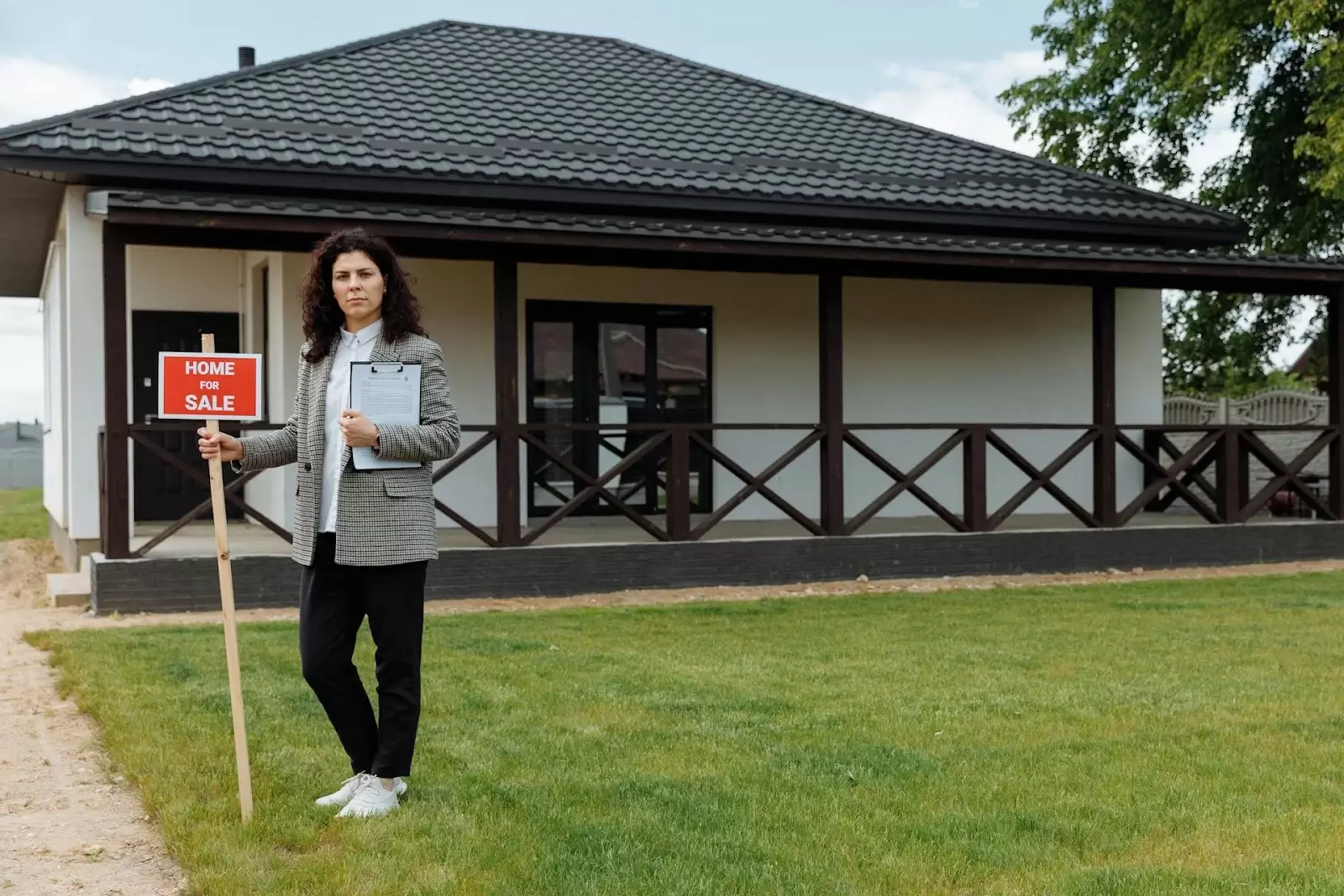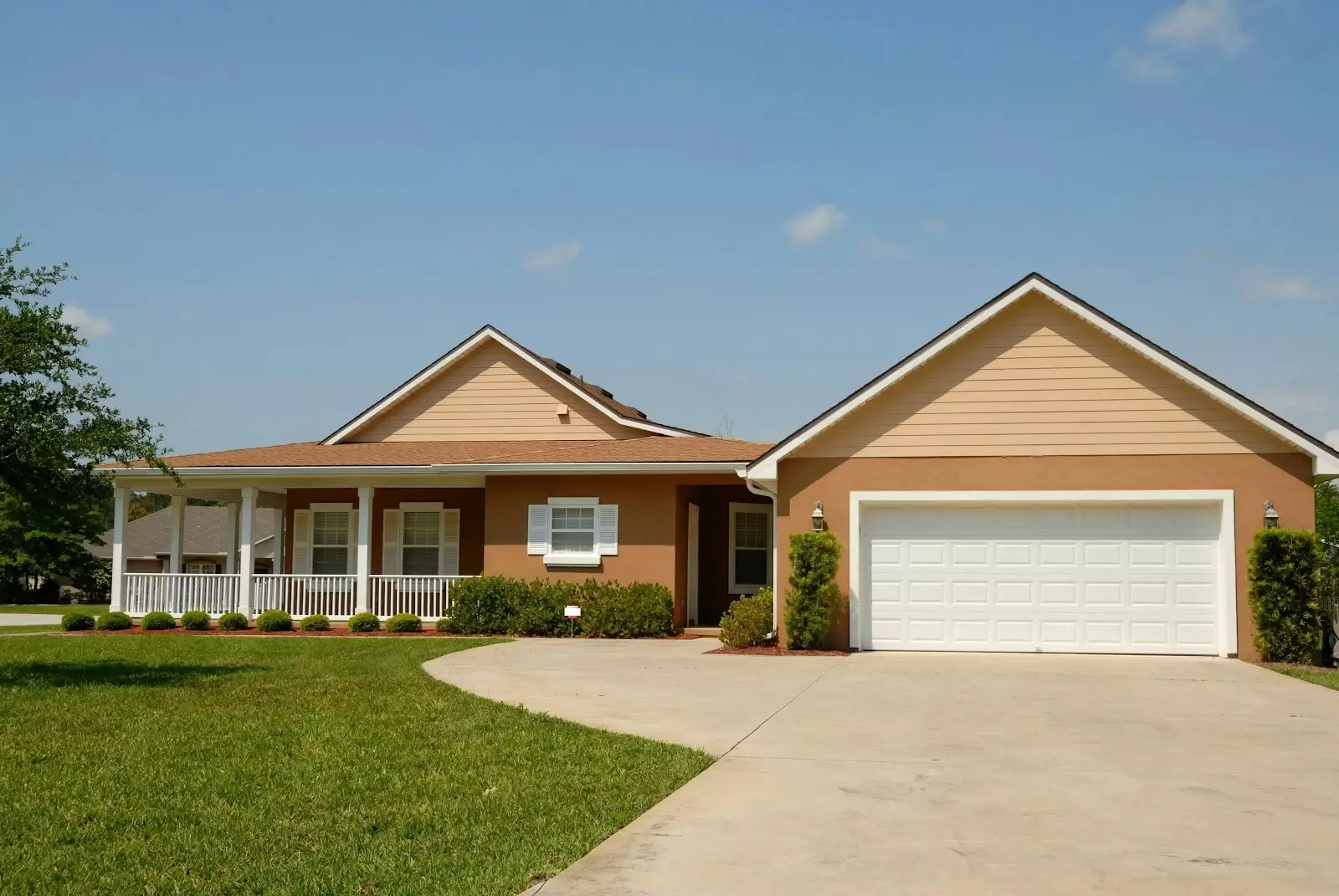What Are the Tax Implications of Selling Your Principal Residence in BC?
Living in beautiful British Columbia? If you're a homeowner, understanding your principal residence is key. It's not just about where you hang your hat; it can significantly impact your taxes and financial picture.
In this blog, we embark on a journey through the intricate and fascinating world of principal residences in British Columbia. Whether you are a first-time homebuyer looking to plant roots in a cozy condo for sale in Vancouver, a seasoned investor exploring the luxury properties of Whistler, or a family searching for the perfect suburban abode in Victoria, we are here to guide you through the highs and lows of the real estate market in this dynamic province.
So sit back, grab a cup of your favorite local brew, and let us be your trusted companion on this exciting journey of exploring the wonders of principal residences in beautiful British Columbia.

A Canadian taxpayer or family can designate only one home as their principal private residence for a particular year.
The PRE: Your Shield Against Capital Gains Taxes
The PRE is a homeowner's best friend in Canada. It allows you to exempt the capital gain (profit) made on the sale of your principal residence from income tax. In simpler terms, if your house increases in value while you own it, you generally won't pay taxes on that increase when you sell.
Qualifying as Your BC Principal Residence
Now, not every property qualifies for this tax haven. Here's what your BC home needs to meet the PRE criteria:
Ownership and Occupancy
You (and your spouse or common-law partner) must have owned and occupied the property for at least some part of the year. There's no strict minimum timeframe, but the Canadian Revenue Agency (CRA) will consider factors like intention and residency to determine if it was truly your principal residence.
Timeframes and Exceptions
There are some exceptions to the occupancy rule. For instance, temporary absences due to work, illness, or military service might still qualify. It's always best to consult the CRA guidelines or a tax professional for specifics.
Designated Properties
If you own multiple properties, only one can be designated as your principal residence per year. This designation allows you to claim the PRE for that specific property.
Selling Your BC Principal Residence
So you're selling your haven in beautiful British Columbia! While excitement likely fills the air, understanding the tax implications of selling your principal residence is key. Thankfully, the Principal Residence Exemption (PRE) often shields you from capital gains taxes. But what happens when things aren't quite so straightforward? Let's explore the different scenarios and how they impact your tax bill.
Full PRE Application
The ideal scenario is a full PRE application. This means all the conditions are met, and the sale of your BC principal residence is generally tax-free. The entire capital gain, the difference between your selling price and purchase price (plus selling costs), is exempt from income tax. So, breathe a sigh of relief and celebrate your windfall (minus realtor fees, of course)!
Partial PRE Application
Life isn't always black and white, and neither is the PRE. Here's where things get a bit more nuanced:
Multiple Properties
If you own multiple properties, only one can be designated as your principal residence per year. Did you rent out another property while living in your BC home? The portion of time you didn't occupy the BC residence might not qualify for the PRE.
Renting Out a Portion
Did you convert your basement into a charming suite? The portion you rented out wouldn't qualify for the PRE. The CRA will calculate the exempt portion based on the percentage of the residence you used as your principal residence.
Short-Term Ownership
Thinking of flipping a property for a quick profit? The new "Property Flipping Rule" (effective January 1, 2023) throws a wrench in the plan. Profits from selling a residential property owned for less than 12 months are considered business income and not capital gains. This means they're fully taxable, with no PRE exemption.
The CRA's Calculation Magic
When a partial PRE applies, the CRA uses a formula to determine the exempt portion of your capital gain. They'll consider the number of days the property wasn't your principal residence relative to the total ownership period.
For example, if you owned your home for five years and rented out a basement suite for two of those years, the exempt portion of your capital gain would be roughly 60% (three years of principal residence use divided by five total years of ownership).
Taxable Capital Gains
The PRE is a wonderful shield, but it only protects your principal residence. Selling any other property, like a vacation home or rental property, will likely result in capital gains taxes. Remember, the PRE is designed to exempt the sale of your primary dwelling, not your investment properties. The profit from selling these properties will be added to your income and taxed accordingly.
Property Flipping Rule
The dream of flipping houses for quick cash might seem appealing, but the taxman has a say in that. The "Property Flipping Rule," introduced in January 2023, has significant implications for short-term ownership. Profits from selling a residential property you owned for less than 12 months are now considered business income, not capital gains. This means they're fully taxable, with no PRE exemption to shield you. So, forget the quick flips – the taxman wants his cut if you're in it for the short haul.
Reporting, Even When Tax-Free
Even if your BC home qualifies for a full PRE application, you're still required to report the sale to the Canada Revenue Agency (CRA). This might seem unnecessary, but it helps the CRA maintain accurate records and ensures everything is above board. Here's what you'll need to do:
- Schedule 3, Capital Gains (or Losses): This form details the sale of your property, including the purchase price, selling price, and selling costs.
- Form T2091(IND), Designation of a Property as a Principal Residence by an Individual (Other Than a Personal Trust): This form allows you to officially designate the property you're selling as your principal residence for the relevant tax years.
Remember: Consulting a tax professional is always wise, especially if your situation involves complexities like multiple property ownership or significant renovations. They can ensure you're reporting everything correctly and maximizing your tax benefits.
Additional Considerations When Selling Your BC Principal Residence
We've covered the tax implications of selling your BC principal residence, from the joy of a full PRE application to the complexities of partial exemptions and taxable scenarios. But before you head off to celebrate (or strategize), there are a few additional considerations to keep on your radar.

The land on which the dwelling sits can also qualify for the exclusion within certain limits, typically up to 1.24 acres according to the Canada Revenue Agency (CRA).
Renovations and the Cost Basis Adjustment
Ever add a stunning deck or transform your basement into a cozy suite? While these improvements might have increased your home's value and enjoyment, they also impact your capital gains calculation. The Canada Revenue Agency (CRA) allows you to increase your "cost basis" (the original purchase price plus selling costs) by the amount you spent on capital improvements. This essentially reduces your capital gain and potentially lowers your tax bill.
Keeping Track of Receipts is Key. Remember to hold onto receipts for major renovations. The CRA might request them to verify the cost basis adjustment.
Seeking Professional Help
Taxation can be a complex beast, and navigating the sale of your principal residence is no exception. Consulting a tax professional is highly recommended. They can provide personalized guidance, ensure you're maximizing your PRE benefits, and help you navigate any potential tax pitfalls associated with selling your BC principal residence.
Final Thoughts
Selling your principal residence in beautiful British Columbia can be an exciting chapter. Understanding the tax implications, particularly the Principal Residence Exemption (PRE), is crucial for maximizing your financial gain. Remember, the PRE can shield you from capital gains taxes on the sale of your primary dwelling. However, there are situations where partial exemptions or taxable scenarios might come into play.
By familiarizing yourself with the PRE criteria, potential tax implications, and additional considerations like capital improvements, you can navigate the sale with confidence. Don't hesitate to seek professional guidance from a tax advisor, especially for complex situations. With a little planning and knowledge, you can ensure a smooth and financially rewarding experience when selling your BC principal residence.
FAQ
1. If I sell my principal residence in BC, do I have to pay capital gains tax?
In most cases, no. The Principal Residence Exemption (PRE) shields you from capital gains taxes on the sale of your principal residence in BC. This applies as long as the property met the ownership and occupancy criteria for the time you owned it.
2. What happens if I owned other properties besides my principal residence?
The PRE only applies to one property per year that you designate as your principal residence. If you rented out a portion of your BC home or owned another property you didn't live in full-time, only the portion of time you used the BC residence as your principal residence might qualify for the PRE.
3. I recently bought and sold a house in BC (less than 12 months). Will I owe capital gains tax?
The "Property Flipping Rule" applies in this case. Profits from selling a residential property owned for less than 12 months are considered business income, not capital gains, and are fully taxable with no PRE exemption.
4. Even if the sale is exempt under the PRE, do I still need to report it to the CRA?
Yes. You must report the sale of your principal residence to the Canada Revenue Agency (CRA) even if it qualifies for the PRE. This is done using Schedule 3, Capital Gains (or Losses), and Form T2091(IND), Designation of a Property as a Principal Residence.
